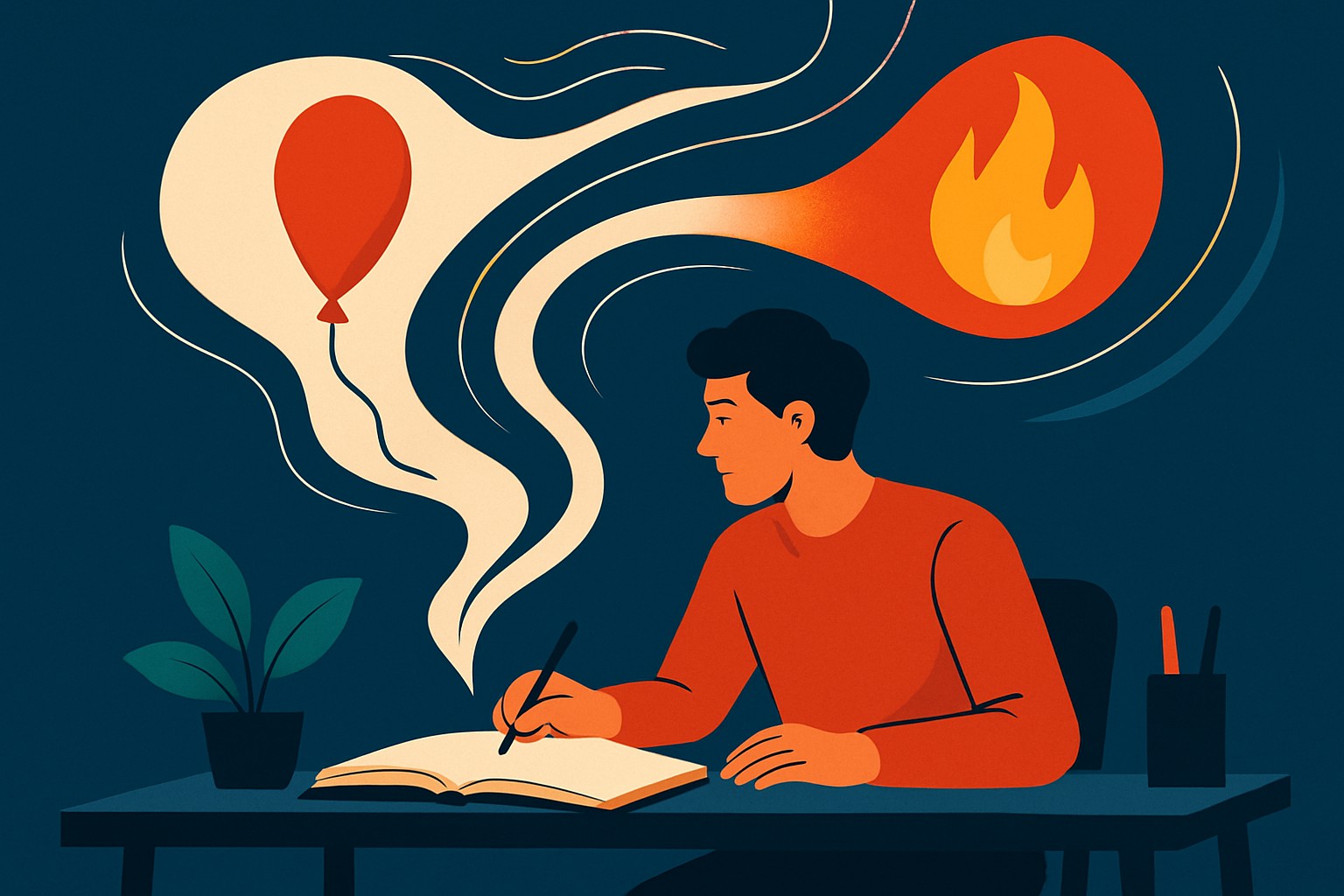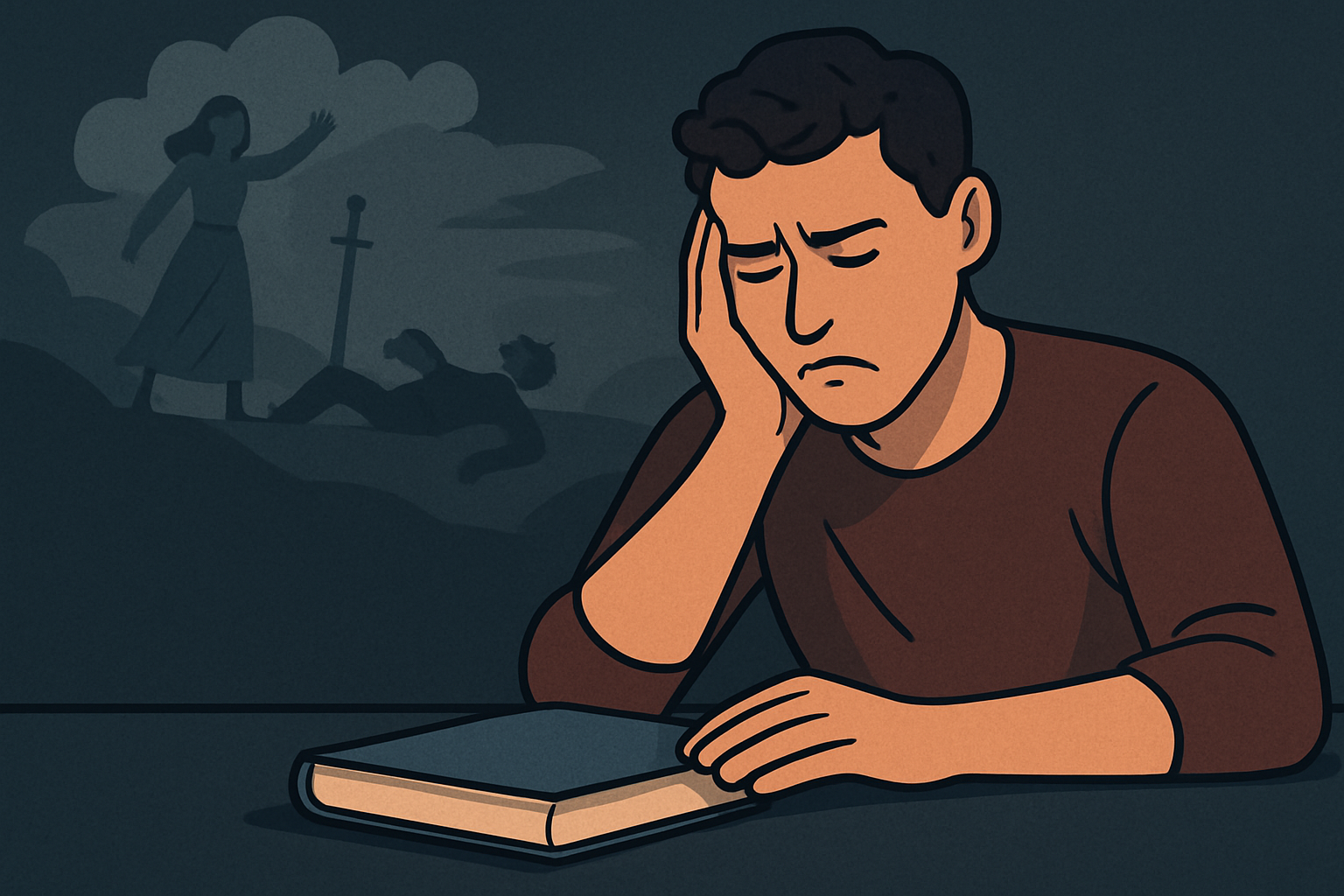
Anticlimax Mistakes That Kill Your Story's Impact


Stories thrive on tension, stakes and resolutions that really hit the mark, which is exactly why can using an anticlimax be damaging for your story. When an anticlimax sneaks in where you expect a big payoff, readers often end up feeling let down or emotionally checked out.
Understanding the Anticlimax and Why It Happens (Because We have All Been There)
An anticlimax in storytelling sneaks up when the much-anticipated peak of tension falls flat or feels underwhelming. Rather than delivering the strong and satisfying resolution you would expect from a classic climax, an anticlimax lets the air out of the buildup and often leaves readers feeling disappointed or confused.
- A sudden ending that cuts the tension short and leaves you breathless, wondering what just happened
- A payoff that falls flat after the story’s careful buildup—it’s like waiting for a feast and getting a snack
- A tone that swings wildly and makes it tricky for readers to connect or settle into the story's emotions
- A lack of buildup means the stakes don’t land or feel urgent enough to keep you hooked
- Stakes that seem fuzzy or off the mark, leaving readers wondering why they should care
Why Using an Anticlimax Can Really Undermine Your Story: Understanding Why Can Using an Anticlimax Be Damaging for Your Story
When a story's climax fizzles out into an anticlimax, it can really throw a wrench into reader engagement. All that emotional buildup carefully stacked throughout the tale tends to vanish into thin air, leaving the narrative flow feeling a bit wobbly as the audience scrambles to make heads or tails of the ending.
- Readers tend to check out early when the payoff doesn’t quite hit the mark or feel earned
- The emotional punch loses its grip and characters and stakes feel less key
- The story’s tension suffers when the stakes feel watered down or undercut
- Suspension of disbelief wobbles if the resolution seems unrealistic or trivial and breaks the spell
- Audience frustration can quietly bubble up and leave a lingering bad taste that’s hard to shake

A reader disappointed by an anticlimax in a story, symbolizing the emotional disconnect caused by a weak narrative payoff.
Common Anticlimax Mistakes Writers Often Make (That Trip Us Up More Than We’d Like)
Not building up enough tension before the climax, leaving readers a bit underwhelmed
Rushing through resolutions like there is no tomorrow, which robs the story of a truly satisfying payoff
Overlooking those key character goals that really define what is at stake and keep us invested
Using a tone that feels just a little off, which can totally muddy the emotional waters
Ignoring what the audience expects around conflict and resolution, sometimes leading to a disconnect that’s hard to shake
One common slip-up I’ve noticed writers often make is skimping on the tension-building before the big climax which leaves the resolution feeling rushed or undeserved. Villains get taken down so fast you’re left scratching your head wondering what just happened. Another recurring hiccup is glossing over the character's goals and that seriously drains the stakes. When the protagonist’s motivation isn’t spelled out clearly the emotional payoff tends to flop like a lead balloon. Then there’s the jarring tone shifts like suddenly hopping from serious drama to lighthearted comedy. This can turn a promising climax into an awkward anticlimax.
"The climax of a great story really has to live up to the emotional bond the audience has grown invested in. If it slips even a bit, it doesn’t just dull the story—it can chip away at the trust between the storyteller and the reader, and that’s no small thing." — Ursula K. Le Guin
Spotting an Anticlimax in Your Story (And Why It’s a Bummer)
Spotting anticlimaxes during revisions can be a bit of a slippery fish but it’s definitely worth the effort. Writers often find it helpful to get feedback from readers to tune into their emotional reactions. Sometimes they catch things the author might miss. It’s also smart to take a close look at pacing to keep the tension humming and make sure emotional moments hit just right. Double-check that the story’s outcomes line up with what was set up earlier.
- Notice a sudden drop in tension right when the story should be hitting its stride and keeping you hooked
- Spot unresolved conflicts or murky endings that leave readers wondering what just happened
- Pick up on flat emotional responses or a resolution that doesn’t quite land and misses the punch that truly resonates
- Recognize when reader interest or engagement starts to fizzle out near the climax, like the story runs out of steam at the last minute
- Catch abrupt endings that feel rushed or leave you hanging in a way that’s more frustrating than satisfying
Handy Tips to Dodge and Fix Those Pesky Anticlimax Errors
Avoiding anticlimaxes is no walk in the park and calls for some careful planning alongside a thoughtful grip on your story's tension and payoff. Writers really need to build that tension steadily, ensuring the resolution matches the stakes laid out earlier—no cheap tricks allowed. Keeping readers’ expectations in sync with the genre and tone is key, or else things can feel a bit off-kilter.
Plan your climax early during the outlining stage to build tension that feels clear and intentional like setting the stage before the big show.
Map out your story’s tension arcs so they rise smoothly and naturally. Think of it as a rollercoaster that hooks you without unexpected bumps.
Keep the tone consistent throughout and ensure the emotions flow seamlessly so things don’t feel like they’re coming out of left field.
Make sure the stakes are crystal clear and really count to the main characters because you want readers to care as much as they do.
Once you’ve gathered feedback from beta readers, test and fine-tune those emotional payoffs. It’s like tweaking a recipe until it really sings.
Pay close attention to scene pacing to strike the right balance. No one wants the climax to feel like it’s dragging its feet or speeding by in a blur.
Improving anticlimactic scenes usually means cranking up the stakes a notch or sharpening those character motivations until they practically leap off the page. It can also mean lingering a bit longer to build that sweet throbbing suspense.
Examples of Anticlimax in Well-Known Stories and How They Skillfully Navigated It
Many well-known stories have faced their fair share of grumbles over anticlimaxes that left fans scratching their heads or feeling a bit cheated, while some crafty storytellers have actually turned anticlimax into a clever tool. This section dives into those cases, unpacking how anticlimax either threw a wrench in the narrative or added an unexpected twist.
| Example Story | Anticlimax Issue Observed | Effect on Audience | Possible Fix or Explanation |
|---|---|---|---|
| "Game of Thrones" (TV) | The ending came across as pretty abrupt and a tad confusing in the final season, leaving a lot of people scratching their heads | Left many viewers feeling frustrated and downright disappointed | Maybe if they had thrown in a bit more plot development and laid out the stakes clearer, the payoff might’ve landed with more punch |
| "Harry Potter and the Deathly Hallows" | Some viewers felt the final showdown didn’t quite pack the punch they were hoping for | Reactions were all over the place; some found it anticlimactic while others were satisfied | In my experience, ramping up the tension before Voldemort’s defeat could’ve really amped up the emotional impact |
| "Lost" (TV series) | Several mysteries just lingered, vague and unresolved by the finale | Sparked confusion and left quite a few viewers feeling unsatisfied | Tackling the main mysteries with a bit more clarity might’ve better matched what the audience was craving |
| "The Sopranos" (TV) | The ending hit suddenly and left things hanging in an ambiguous fog | It split the crowd; some people praised the bold choice, while others were left baffled | Seems like an intentional move to shake up traditional narrative closure, which, love it or hate it, definitely gets people talking |
| "The Office" (US) (series finale) | Overall pretty satisfying, though you could spot a few brief anticlimax moments sneaking in | Mostly positive vibes with only minor disappointment here and there | The blend of humor and balanced tone did a neat job of softening any anticlimax feelings |
Balancing Expectations When an Anticlimax Might Just Do the Trick
This is why can using an anticlimax be damaging for your story, as it often drains a narrative's punch. However, when used deliberately, this technique can add humor, flip expectations, or keep things feeling real.
- Satire and parody love to throw in anticlimaxes to playfully mock the usual storybeats we’ve all grown accustomed to
- Realism often embraces anticlimaxes because life rarely wraps up neatly and leaves things hanging just as they do in real life
- Antihero tales lean on anticlimaxes to expose characters who are wonderfully flawed and refreshingly complicated
- Dark humor counts on anticlimaxes to deliver unexpected chuckles or ironic punches that catch you off guard
- Unexpected twists deliberately use anticlimaxes to pull the rug out from under the audience and nudge us to think a bit deeper or simply blink in surprise






